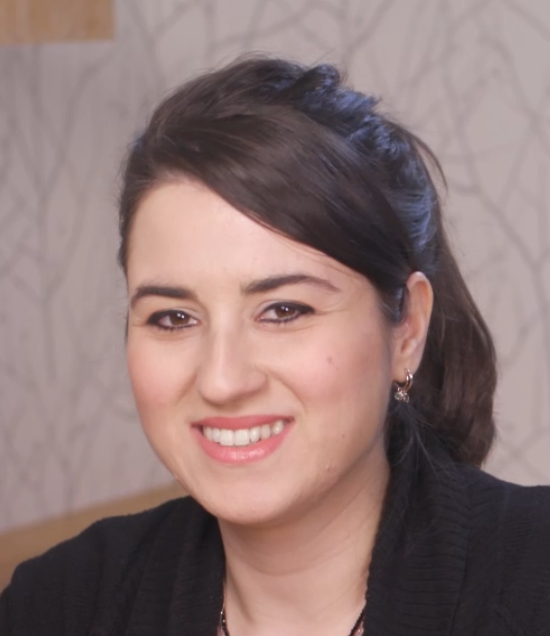There are two tutorial sessions for MECC 2021:
Engaging Your Students with Interactive Exercises, Virtual Labs and Low-Cost Hardware Experiments Using MATLAB and Simulink
More details here;
you may download the MathWorks Tutorial Materials here.
-
Introduction:
In this session, a panel of experienced faculty will demonstrate a range of techniques and tools to better engage students and improve student learning. You will hear from the panel participants how to implement interactive live scripts, create, and run virtual labs, and develop low-cost hardware-based activities to help your instruction come alive.
-
Teaching Modeling and Controls with the MATLAB Live Editor
 Presenter: Dr. Richard Hill, University of Detroit Mercy.
Presenter: Dr. Richard Hill, University of Detroit Mercy.
Teaching the modeling and control of dynamic systems is challenging because the topic requires significant mathematics and can be somewhat abstract. In this session, Professor Hill demonstrates how to use the MATLAB Live Scripts to help your instruction come alive. The use of the MATLAB Live Scripts allows you to create lectures that illustrate complex topics through interactive homework assignments that help students build intuition for course material and construct meaning for themselves. Pedagogical research clearly demonstrates the benefits of inquiry-based, active learning. Specific examples will be demonstrated showing how to use these methods to illustrate the mathematics of control, as well as the art of controller design. Techniques for making space in a course and for freeing up instructor time for implementation also will be discussed. Specifically, the MATLAB Grader will be introduced as a means for reducing the burden of grading, while providing another method for improving student learning. Sources for different reference materials necessary for implementing the techniques taught in this workshop will also be shared.
-
Teaching Vibrations and Control Labs Online Using Simscape and MATLAB Apps
 Presenter: Dr. Ayse Tekes, Kennesaw State University.
Presenter: Dr. Ayse Tekes, Kennesaw State University.
In many institutions, limited resources for laboratory equipment inhibit student learning of dynamics, vibrations, and control concepts due to constraints on the use of available turnkey equipment. As a result, the laboratory components for these courses are often limited as the equipment is expensive, few in number, and bulky. Nonetheless, when provided, hands-on experiences in class and lab enhance student learning through the application of highly complex concepts. Beneficial outcomes include constructing deeper knowledge, modeling, designing experimental systems, developing technical laboratory skills, analyzing acquired data, presenting, and interpreting results. Students need physical experience with the theoretical issues discussed in the classroom to gain a deeper understanding. Although laboratories are essential in undergraduate engineering courses, the challenges for student learning that arose with the COVID-19 crisis and which we are still facing right now have made it much more difficult to achieve course learning objectives tied to the laboratory or hands-on experiences. Teaching undergraduate level dynamics, vibrations, and control theory courses, we realized the need for visualization of basic conceptual principles while the topic is introduced in the classroom. The vast majority of undergraduate students struggle with highly mathematical abstract topics. We developed MATLAB apps that can be utilized as virtual labs to let students simulate and visualize modeling and control of dynamical systems in Simscape for vibrations and control theory courses, and their associated laboratories. This talk will highlight a few examples of how the developed apps can be used for teaching labs online using Simulink and Simscape.
-
Teaching Dynamics and Control with Arduino-based TCLab
 Presenter: Dr. John Hedengren, Brigham Young University.
Presenter: Dr. John Hedengren, Brigham Young University.
The small, inexpensive, and take-home temperature control lab (TCLab) reinforces process dynamics and control theory with real data. A 2015 NSF-sponsored report “Chemical Engineering Academia- Industry Alignment: Expectations about New Graduates” identifies a strong industrial need for practical understanding of process control and system dynamics. Industry feedback also suggests more focus is needed on translating process control theory into practice. At many universities, this need is met by integrating laboratory experiences into the process control course. In-person laboratory resources are difficult to schedule and manage, especially with COVID-19 restrictions. The TCLab hardware consists of an Arduino® shield that fits onto a standard Arduino Leonardo or UNO microcontroller. This talk highlights a few examples of how the TCLab can be interfaced with and run from MATLAB® live scripts and from Simulink. The use of interactive MATLAB live scripts and Simulink reinforce conceptual understanding of modeling and control topics before students implement code. The TCLab module demonstrates many process control modalities such as SISO, MIMO, and cascade control. Students implement the control modalities by coding control algorithms including relay, PID, and model predictive control. The lab is integrated at various points in the process dynamics and control course to reinforce theory with a practical application.
-
Resources for Instructors Teaching Controls Courses and Labs
 Presenters: Dr. Craig Buhr and Dr. Melda Ulusoy, MathWorks.
Presenters: Dr. Craig Buhr and Dr. Melda Ulusoy, MathWorks.
In this talk, MathWorks engineers will give an overview of various resources for instructors teaching dynamics and controls courses: (1) MATLAB Tech Talks are short educational videos that teach complex controls concepts to students and can help supplement instructors’ curriculum materials.(2) MATLAB Grader lets instructors create interactive course assignments and automatically grade the MATLAB code. Instructors can build MATLAB coding problems and store them in collections. (3) Onramps are free self-paced tutorials that help students learn the fundamentals of MATLAB, Simulink, control design, reinforcement learning and many more topics and tools. (4) MATLAB Online makes teaching and learning convenient by providing access to MATLAB and Simulink from any browser. The session will also highlight controls curriculum, virtual labs, and low-cost hardware projects developed by instructors.
Modeling, Estimation, and Control of COVID-19
More details here.
